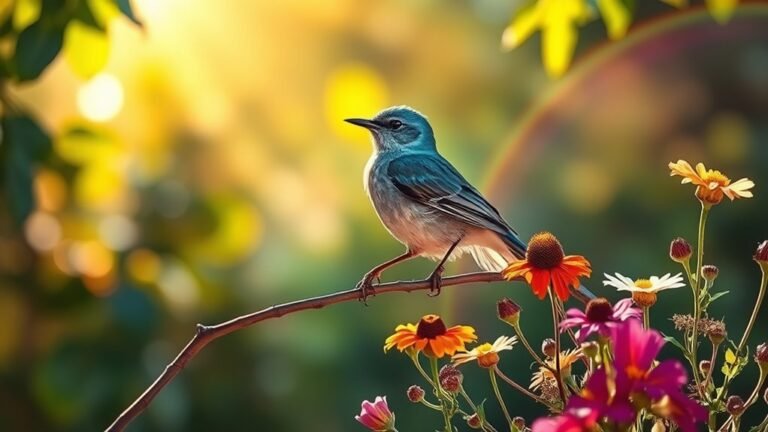Spiritual Meanings of Seeing Dead Owl: 10 Sacred Messages
Seeing a dead owl can provoke strong feelings and thoughts. It serves as a reminder of nature's balance and the cycle of life. Let's explore the messages behind this experience and how it connects to our intuition and the universe.
- Change and Transformation: A dead owl can symbolize a significant change in your life. It encourages you to embrace new beginnings.
- Intuition: This sight may signal a need to trust your instincts more. Pay attention to your gut feelings.
- Wisdom: Owls are often seen as symbols of wisdom. A dead owl reminds you to seek knowledge and learn from your experiences.
- Life and Death: This sight highlights the cycle of life and death. It encourages reflection on your own life journey.
- Release: A dead owl can signify the need to let go of something that no longer serves you. Consider what you need to release.
- Observation: This experience prompts you to observe your surroundings more closely. Look for signs and messages in your environment.
- Mystery: Owls are mysterious creatures. This sight may encourage you to embrace the unknown and explore new ideas.
- Guidance: A dead owl can be a call for guidance. Seek support from friends, family, or mentors during times of change.
- Protection: Some cultures view owls as protectors. Seeing a dead owl may remind you that you are not alone and are watched over.
- Reflection: Finally, this sight invites you to reflect on your life. Consider what lessons you can learn and how you can grow.
In summary, a dead owl carries significant messages about change, intuition, wisdom, and life. Embrace these lessons to guide you forward.
Key Takeaways
- A dead owl represents change. It encourages you to accept transformation and trust your path.
- The presence of a dead owl reminds you of life's fragility. It inspires you to value each moment and relationship.
- Seeing a dead owl connects you to your spirit guides. They offer messages of bravery and intuition during life changes.
- Reflecting on the cycle of life and death helps you understand and accept life's temporary nature.
- Meditation and journaling can reveal insights and lessons from this experience.
Embracing Change and Transformation
Encountering a dead owl holds spiritual meaning that can inspire us to reflect on our personal journeys of change.
This moment invites us to recognize that transformation is a natural part of life. We can face our fears and resistances, embracing the lessons that come with accepting change.
Each ending leads to new beginnings, guiding us to discover who we're meant to be. The owl symbolizes wisdom and encourages us to trust the unknown and the process ahead.
Let's honor our shared experiences and find strength in our vulnerability as we embrace transformation together.
A Call to Trust Your Intuition
Trust your intuition as you embrace change. This inner voice can guide you toward clarity.
Here are four ways to strengthen your intuition:
- Meditate Regularly: Set aside time for quiet reflection.
- Journal Your Thoughts: Write freely to explore your feelings.
- Engage with Nature: Spend time outside to reconnect with yourself.
- Practice Mindfulness: Focus on the present to notice subtle signals.
A Reminder of Life's Fragility
Life can feel fast-paced and overwhelming. The sudden sight of a dead owl can remind us how fragile life is. This moment encourages us to pause and think.
Each day, we may overlook simple joys, laughter, and connections with others. The owl, once seen as wise, now teaches us to value every breath and heartbeat.
We shouldn't just exist; we should appreciate the fleeting nature of life. Let's remember the lessons we learn and the moments we share.
In these experiences, we find what life truly means.
The Presence of Spirit Guides
Seeing a dead owl can create a strong feeling of connection to the forces around us. In this moment, we may sense the presence of our spirit guides, offering comfort and support. They communicate quietly, encouraging us to recognize our spiritual ties.
Here are some messages they share:
- Trust your intuition; it will guide you.
- Embrace change; it's a part of growth.
- Look within for answers; they're there.
- Remember, you're never alone; we're all connected.
As we think about these messages, let's appreciate how spirit guides enrich our lives.
They help us move forward with love, courage, and faith in what we can't see. Together, we can find peace in their support.
A Message of Protection
When we find a dead owl, it serves as a reminder that protection is always with us, even in tough times.
This symbol speaks to our hearts, encouraging us to accept the spiritual help around us. We feel the presence of our ancestors, their wisdom connecting with ours, offering protection from harm.
In this moment, we find comfort, knowing we aren't alone on our path. The stillness of the owl invites us to pause and trust in the forces that watch over us.
Let's embrace this message, understanding that we're wrapped in love and safety, guiding us through life's challenges with support.
Releasing Fear and Embracing the Unknown
Encountering a dead owl encourages us to let go of fear and welcome the unknown. This moment invites us to explore new possibilities, overcome anxiety, and embrace uncertainty.
Here are some steps to take together:
- Recognize that fears are a normal part of our journey.
- Trust in the universe and its unfolding events.
- Find support in our community by sharing experiences and insights.
- Stay present through mindfulness, focusing on the now.
In this supportive space, we build strength. Embracing the unknown can lead to meaningful change.
Let's walk this path together, facing life's uncertainties and growing braver along the way.
The Importance of Reflection and Solitude
We often move quickly through life, but taking time for reflection and solitude can greatly improve our understanding of ourselves.
In quiet moments, we begin to discover who we really are. Here, we face our thoughts, fears, and dreams, allowing clarity to come like light after darkness.
Let's appreciate these moments of stillness, where outside noise fades, and we can hear our inner thoughts.
Each moment alone is an opportunity to reconnect with ourselves, helping us feel a sense of belonging.
A Sign to Pay Attention to Your Dreams
In quiet moments, our thoughts drift into dreams, revealing truths and messages.
Seeing a dead owl encourages us to look deeper into our minds. It invites us to understand dream meanings.
Let's explore what dreams can tell us:
- Intuition: Dreams show our true desires and fears.
- Guidance: They provide direction in times of confusion.
- Healing: Dreams offer comfort and clarity.
- Connection: They highlight our link to the universe.
Pay attention to your dreams; they hold important insights.
Acknowledging Your Inner Wisdom
When we find stillness inside, we often hear the soft voice of our inner wisdom. In these quiet times, we let our hearts lead us, revealing insights that help us understand ourselves better.
We can create a space where our inner guidance thrives, showing us new paths we may have missed. This journey is personal, but it also connects us through shared experiences and dreams.
As we pay attention to our intuition, we build trust and understanding, realizing that we're never alone.
Let's respect these important messages, strengthen our connections with each other and the universe, and embrace the wisdom that lives within us all.
The Cycle of Life and Death
Life and death are connected. Each one gives meaning to the other. When we see a dead owl, it reminds us of the cycles in life. Accepting the symbolism of death helps us understand these life cycles:
- Transformation: Every ending leads to a new start.
- Connection: We remain linked to those who've died.
- Reflection: We should think about our own mortality.
- Renewal: Life's essence flows through all living beings.
These ideas help us appreciate the journey we all share.
Frequently Asked Questions
What Does It Mean When I Dream of a Dead Owl?
When you dream of a dead owl, it may symbolize change or lost wisdom. Owls often represent knowledge and intuition. A dead owl could suggest that you are facing hidden truths or unresolved issues in your life. This dream invites you to reflect on your feelings and thoughts. Consider what aspects of yourself need attention or healing. The dream can serve as a reminder to seek clarity and understanding in your current situation.
Are There Cultural Interpretations of Dead Owls?
Cultural interpretations of dead owls reveal important meanings. In Native American culture, owls symbolize wisdom. They are seen as knowledgeable creatures. In Ancient Egypt, people viewed owls as guides to the afterlife. This connection highlights how different cultures find significance in the presence of dead owls, linking them to deeper spiritual beliefs. By understanding these interpretations, we can appreciate the role of owls in various traditions.
Can Seeing a Dead Owl Predict Bad Luck?
When we see a dead owl, we often wonder what it means. Many people think it is a sign of bad luck, rooted in superstitions. However, interpretations can differ. Some view it as a reminder of the cycle of life. Others find it an opportunity for reflection. Understanding these views can help us see the situation in various ways.
How Can I Honor the Message of a Deceased Owl?
To honor a deceased owl, create a small memorial. Use natural elements like stones, leaves, or feathers. Reflect on the lessons the owl taught you. Connect with nature and celebrate the wisdom it shared. This act can bring peace and appreciation for the owl's life.
Do Different Owl Species Carry Different Spiritual Meanings?
Different owl species have unique symbolism and significance. Each type of owl represents various aspects of wisdom, mystery, and guidance. By understanding these meanings, we can connect more deeply with nature and enhance our journey of understanding.

Hi, I’m Ethan—a spiritual wordsmith at SpiritualDivineInsight.com. My passion lies in exploring the mysteries of spirituality and sharing transformative insights. Through my articles, I invite you on a journey of self-discovery and mindfulness. Join me as we navigate the path to enlightenment together.





